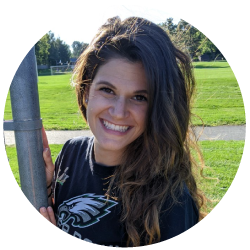
Four Tips To Build Habits
June 2021
By journaling all of your food and beverages that you have consumed daily, you will be able to see how many calories you have eaten that day as well as food groups that may be lacking in your diet. Journaling has consistently been shown to be effective in altering food habits and food behaviors (Bauer & Liou 2020). Even though journaling has been shown to be successful, many individuals do not use food journals due to the daunting feeling of having to log every food item and portion size of each meal daily. Below are some tips to help you to develop a food journaling habit and how to make the process less daunting.
- Start with a small goal for food journaling such as two times a week to start to develop the habit of keeping a food journal. Once that goal is easily achieved, gradually add more days of food logging until you are logging daily during the week.
- Ideally a food journal should include a list of the foods consumed, portion sizes for that list, calories of each meal, and physical activity. Any other items logged such as mood, degree of hunger, etc. are not essential in the food journal process, but may be helpful to some individuals if deemed important.
- It is okay to estimate the food you consumed as opposed to providing exact amounts.
There are a variety of food journal options. There are written logs, smartphone applications, or picture taking methods. Choose the one that is appropriate for you. - Whenever possible, log all food that you ate during a meal immediately after you have eaten to prevent having to record from memory hours later.
It is essential that you review your food journal frequently (or have someone like me review it for you) in order to determine if you are consuming enough food from each food group, eating enough calories for your weight loss goals, and using your food data to create new small goals to help you develop healthier eating habits. If you do not review your food journal, the process of food journaling will not be as effective. If you are looking for a free food journal that has the required items to log as well as enough space to write, make sure to download your free resources.
References:
Bauer, K. D., & Liou, D. (2020). Nutrition Counseling and Education Skill Development 4th Edition. Cengage Learning.

Jes Smith-Heiner
Virtual Nutrition and Fitness Coach
My name is Jes and I am passionate about helping you on your weight loss journey. I have always valued the importance of nutrition and physical activity for weight loss which has led me to become a: NASM Certified Personal Trainer, NASM Certified Nutrition Coach, and a Physical Education Teacher. I have also obtained a Bachelor's Degree in Kinesiology and a Master's Degree in Exercise Science.

0 Comments